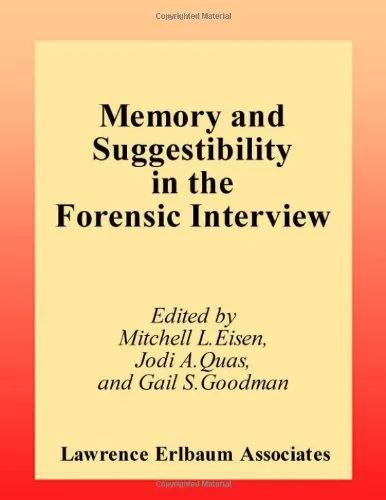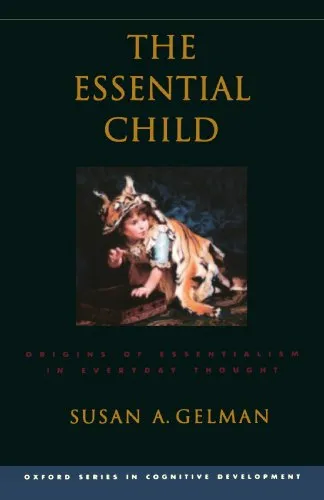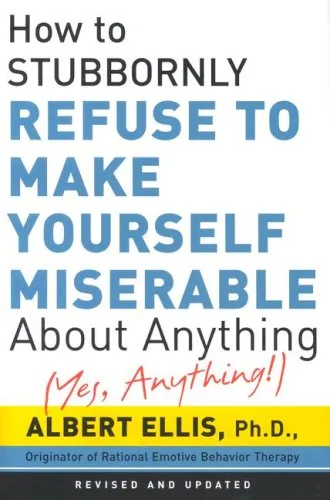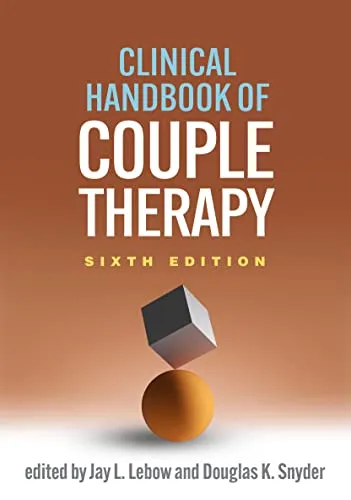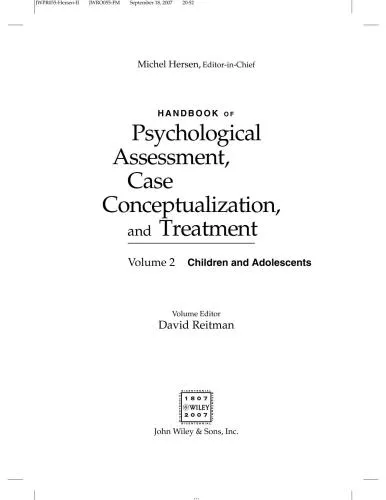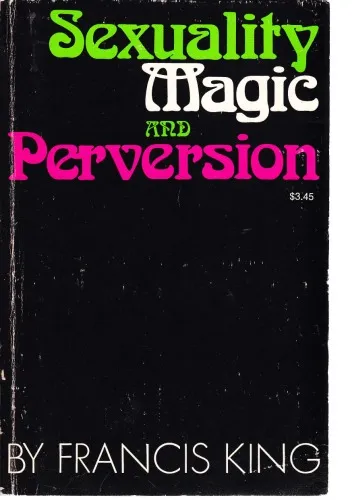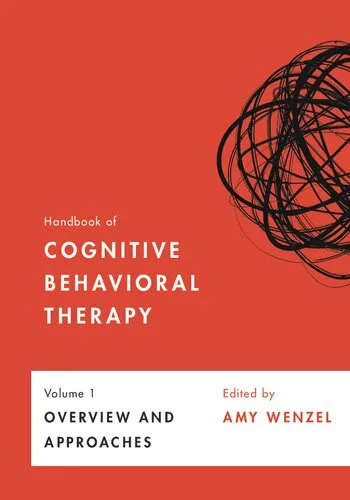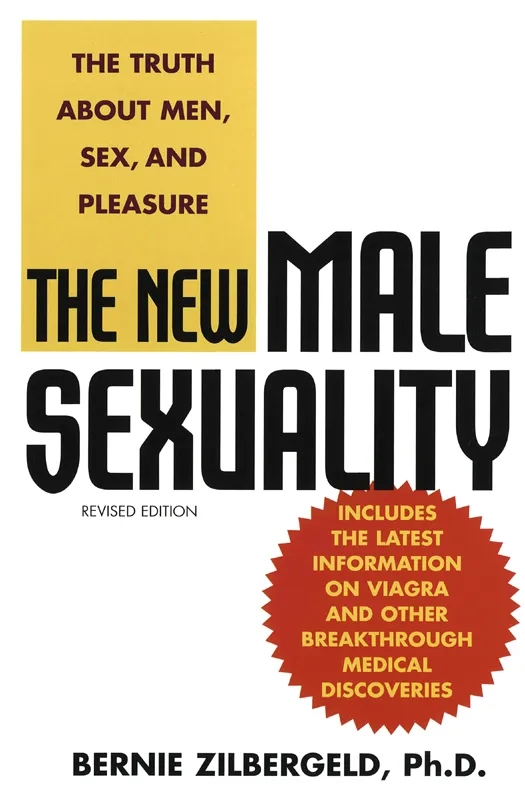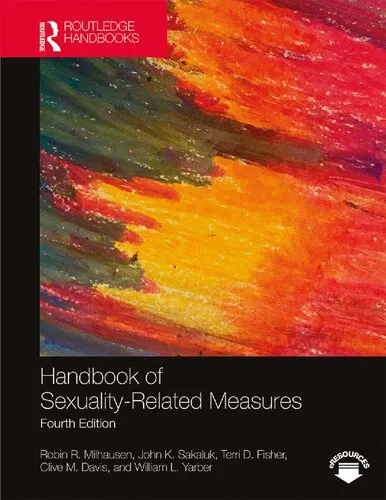Memory and Suggestibility in the Forensic interview (Personality and Clinical Psychology Series)
4.5
بر اساس نظر کاربران

شما میتونید سوالاتتون در باره کتاب رو از هوش مصنوعیش بعد از ورود بپرسید
هر دانلود یا پرسش از هوش مصنوعی 2 امتیاز لازم دارد، برای بدست آوردن امتیاز رایگان، به صفحه ی راهنمای امتیازات سر بزنید و یک سری کار ارزشمند انجام بدینکتاب های مرتبط:
معرفی کتاب "Memory and Suggestibility in the Forensic Interview"
کتاب "Memory and Suggestibility in the Forensic Interview" یکی از آثار برجسته در حوزه روانشناسی شخصیت و روانشناسی بالینی است که توسط نویسندگان برجسته میچل ال. آیزن، جودی ای. کوآس و گیَل اس. گودمن تألیف شده است. این اثر علمی به بررسی عمیق و کاربردی حافظه و تأثیر آنپذیری، به ویژه در موقعیتهای مصاحبه قانونی، میپردازد. کتاب با هدف ارائه یک دیدگاه جامع به متخصصان، پژوهشگران، و قضات ارائه شده و بهویژه در زمینه روانشناسی قانونی و بازجویی ارزشمند است.
خلاصه کتاب
کتاب در چندین بخش به موضوعات متعددی، از جمله نقش حافظه در تصمیمگیری و قضاوتهای قانونی، عوامل تأثیرگذار بر تأثیرپذیری فرد در زمان مصاحبه قانونی، و روشهای مقابله با اطلاعات نادرست در روایات شاهدان عینی، میپردازد. همچنین مباحث علمی پیرامون نحوه عملکرد حافظه انسان، تغییرات حاصل از سن، و اثر فشار روانی بر تواناییهای شناختی مورد بحث قرار گرفتهاند. نویسندگان با استفاده از مطالعات موردی و دادههای تجربی، به تحلیل روابط بین حافظه، Suggestibility، و دقت در پاسخها پرداختهاند. این اثر بهویژه تلاش دارد تا راهبردهایی را برای کاهش خطاهای بالقوه در مصاحبههای قانونی پیشنهاد دهد.
نکات کلیدی
- تأثیر عوامل شناختی، احساسی و محیطی بر حافظه و روایتهای شاهدان.
- روشهای علمی ارزیابی حافظه در مصاحبههای قانونی.
- تأثیر Suggestibility بر صحت و دقت شهادتها.
- نقش تمرین و آموزش در بهبود مصاحبههای قانونی و کاهش اطلاعات غلط.
- بررسی چالشهای اخلاقی و روانشناسانه در فرآیند بازجویی.
جملات مشهور از کتاب
"Understanding the interplay between memory and suggestion is not just a scientific pursuit; it’s a critical endeavor for ensuring justice in legal systems."
"The malleability of human memory is both its gift and its curse, especially when consequences of inaccuracies are dire."
"Examining how context, question framing, and psychological stress shape witness recall is integral for improving forensic practices."
چرا این کتاب اهمیت دارد
اهمیت کتاب در این است که موضوعات کلیدی را که هم از نظر علمی و هم از نظر کاربردی در حوزه روانشناسی قانونی و نظام قضایی اهمیت دارند، عمیقاً تحلیل میکند. حافظه و Suggestibility از عوامل اساسی در ارزیابی صحت شهادتها و اظهارات شاهدان بوده و خطاهای مرتبط با این مفاهیم میتوانند نتایج قانونی مورد نظر را به شدت منحرف کنند. این کتاب راهنمای ارزشمندی برای روانشناسان بالینی، ماموران قضایی، و پژوهشگران است که به دنبال آن هستند تا فرآیند مصاحبههای قانونی را دقیقتر و منصفانهتر کنند. افزون بر این، اثر از دیدگاه اخلاقی نیز برای جلوگیری از سوء استفاده احتمالی از حافظه و Suggestibility نکات مهمی را بیان میکند.
Introduction to "Memory and Suggestibility in the Forensic Interview"
"Memory and Suggestibility in the Forensic Interview" is a groundbreaking book in the field of forensic psychology, written by distinguished researchers Mitchell L. Eisen, Jodi A. Quas, and Gail S. Goodman. This volume offers deep insights into the complex interplay between memory, suggestibility, and how they influence forensic interviews. It is part of the esteemed Personality and Clinical Psychology Series and is designed for professionals, researchers, and students seeking evidence-based strategies for improved interviewing techniques.
In legal and judicial settings, the reliability of eyewitness testimony, especially from vulnerable populations like children, is crucial. However, issues such as memory distortions, suggestive questioning, and external influences can compromise the integrity of this testimony. This book delves into the psychological mechanisms that influence memory and suggestibility, offering practical guidelines to mitigate these challenges. By weaving theoretical foundations, empirical research findings, and real-life case studies, the authors provide a comprehensive resource that bridges science and application in forensic contexts.
Detailed Summary
At its core, the book investigates how memory works under various conditions and the implications for forensic interviews. The authors address critical topics, such as memory accuracy, the effects of stress and trauma, factors that influence suggestibility, and the challenges of interviewing children or individuals with cognitive impairments. The book showcases how forensic interviews can either enhance or compromise the quality of testimony through the use of suggestive questioning, leading to either accurate recall or false memories.
Divided into several thematic sections, "Memory and Suggestibility in the Forensic Interview" explores the neuroscience and psychology of memory formation, the factors that impact memory retrieval, and strategies to minimize external influences during interviews. The authors also focus on the legal and ethical considerations of forensic investigations, offering guidelines for conducting interviews while upholding the integrity and welfare of the interviewees.
With a rich blend of academic rigor and practical applications, the book offers empirical evidence to help forensic practitioners make informed decisions. It is indispensable reading for anyone involved in legal proceedings that rely on testimonial evidence, including psychologists, law enforcement officials, attorneys, and judges.
Key Takeaways
- Understanding how memory functions under stress and trauma, and its impact on forensic testimony.
- Techniques to minimize suggestibility during interviews, ensuring accurate and reliable information retrieval.
- Critical analysis of the psychological dynamics affecting vulnerable populations such as children and cognitively impaired individuals.
- Legal and ethical guidelines for conducting interviews that respect the dignity of the interviewees.
- A detailed exploration of false memories and how to prevent their influence on judicial outcomes.
Famous Quotes from the Book
"The interview process is not neutral; it has the power to either illuminate the truth or distort it beyond recognition."
"Memory is malleable, and suggestive techniques in interviews can transform truth into fiction. The challenge lies in safeguarding authenticity."
Why This Book Matters
This book is a vital resource for anyone involved in the intersection of psychology, law, and human rights. The accuracy and reliability of forensic interviews often determine the outcomes of critical legal cases. Missteps in interviewing techniques can lead to false accusations, wrongful convictions, or the dismissal of genuine victims' accounts. Therefore, this book addresses a pressing need in contemporary forensic practices.
By highlighting the science behind memory and suggestibility, the authors empower readers to critically evaluate and refine their approaches to obtaining testimonial evidence. Furthermore, the book's focus on ethics and humanity ensures that interview processes serve justice while protecting the emotional and psychological well-being of participants. It elevates the standard of forensic interviews, making it invaluable for legal professionals, academic researchers, and policymakers alike.
دانلود رایگان مستقیم
شما میتونید سوالاتتون در باره کتاب رو از هوش مصنوعیش بعد از ورود بپرسید
دسترسی به کتابها از طریق پلتفرمهای قانونی و کتابخانههای عمومی نه تنها از حقوق نویسندگان و ناشران حمایت میکند، بلکه به پایداری فرهنگ کتابخوانی نیز کمک میرساند. پیش از دانلود، لحظهای به بررسی این گزینهها فکر کنید.
این کتاب رو در پلتفرم های دیگه ببینید
WorldCat به شما کمک میکنه تا کتاب ها رو در کتابخانه های سراسر دنیا پیدا کنید
امتیازها، نظرات تخصصی و صحبت ها درباره کتاب را در Goodreads ببینید
کتابهای کمیاب یا دست دوم را در AbeBooks پیدا کنید و بخرید
1208
بازدید4.5
امتیاز0
نظر98%
رضایتنظرات:
4.5
بر اساس 0 نظر کاربران
Questions & Answers
Ask questions about this book or help others by answering
No questions yet. Be the first to ask!
